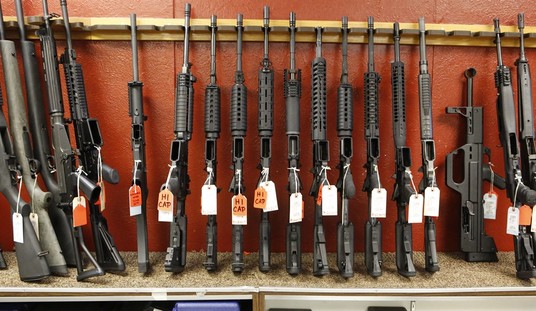Over the past couple of days I've seen several headlines claiming that New York District Attorney Alvin Bragg has managed to get a website popular with the 3D printing community to ban files related to firearms. ABC News, for example, reported that a "digital design firm agreed to block gun files after a letter from Bragg.
The website The Register ran with a similar story, though it's headline didn't mention Bragg. Instead, it went with "3D printing site bans guns, hobbyists undeterred."
Earlier this year, Bragg wrote to 3D printing companies, asking them to ensure their services can’t be used to create firearms. On Saturday, Bragg announced that one such company, Thingiverse, would remove working gun models from its site. The company operates a popular free library of 3D design files and had already banned weapons in its terms of use, but is now promising to improve its moderation procedures and technology.
"Following discussions with the Manhattan District Attorney's Office about concerns around untraceable firearms, we are taking additional steps to improve our content moderation efforts," Thingiverse said in a statement. "As always, we encourage our users to report any content that may be harmful."
In other words, this isn't the big victory that Bragg is touting. Thingiverse already prohibited users from uploading or disseminating files to help people print guns (and presumably gun parts) using 3D printers. All they're doing is telling the district attorney they'll try to do better to keep those files off the website.
Good luck with that. Regardless of how you feel about restrictions on these files (and I'm wholeheartedly opposed), the fact is that the bigger the platform the harder it is to police what can be found there. Meta, for example, has long banned gun sales on sites like Facebook and Instagram, but it's not hard to find users offering up firearms to interested buyers. Sometimes they'll use coded language or offer things like gun cases for sale (with a free firearm thrown in), but you can also find people who are blatantly disregarding the terms of use.
Whether its hardcore pornography on YouTube or human trafficking on Facebook, there's plenty of content on these sites that aren't supposed to be there. And I'm sure that intrepid users of Thingiverse will figure out a way to bypass the site's moderation policy if they really want to.
In the meantime, Bragg is reportedly in talks with other sites like Creality, so he's not letting up on his pressure campaign. Nor is he content to stop there. According to The Register, he's also looking to criminalize the distribution of these files.
Additionally, Bragg has called for new laws that would make it a class D felony to 3D print guns and a class A misdemeanor to distribute gun design files. Back in 2023, a New York state senator, Jenifer Rajkumar, introduced a bill which would have required a background check for every 3D printer sold in the state. However, that proposal never made it out of committee.
It's unclear whether a law banning the availability of 3D printed gun files would violate the First Amendment. In March, the Supreme Court ruled [PDF] that the ATF can regulate ghost guns. However, it didn't have anything specific to say about 3D design files.
It may be unclear, but some courts have already concluded that code is protected speech. In Bernstein v. DOJ both a circuit court judge and a three-judge panel on the Ninth Circuit Court of Appeals ruled that computer code is protected by the First Amendment, though the case never reached the Supreme Court.
Oddly, though The Register reported on Bragg's effort to criminalize the code, in the same story it claimed that the district attorney's "approach to 3D printing sites and 3D printer manufacturers is to seek voluntary cooperation."
That's one of his angles, but if he's also trying to make it a felony to print 3D guns and a misdemeanor to distribute files it's clearly not his only approach. And given his position, it's likely that Bragg will target those companies that don't comply with his "request" with civil litigation in the future.
"While law enforcement has a primary role to play in stopping the rise of 3D-printed weapons, this technology is rapidly changing and evolving, and we need the help and expertise of the private sector to aid our efforts," Bragg said. "We will continue to proactively reach out to and collaborate with others in the industry to reduce gun violence throughout Manhattan and keep everyone safe."
As I talked about in a previous post, gun making is unquestionably a part of our national tradition of gun ownership. The fact that technology has made it easier for the average person to build their own gun doesn't negate our right to do so, anymore than inkjet printers or copiers diminished our First Amendment rights. Companies like Thingiverse might prohibit these files from their sites, but there's no way to stop the signal when it comes to this technology and its use.








Join the conversation as a VIP Member